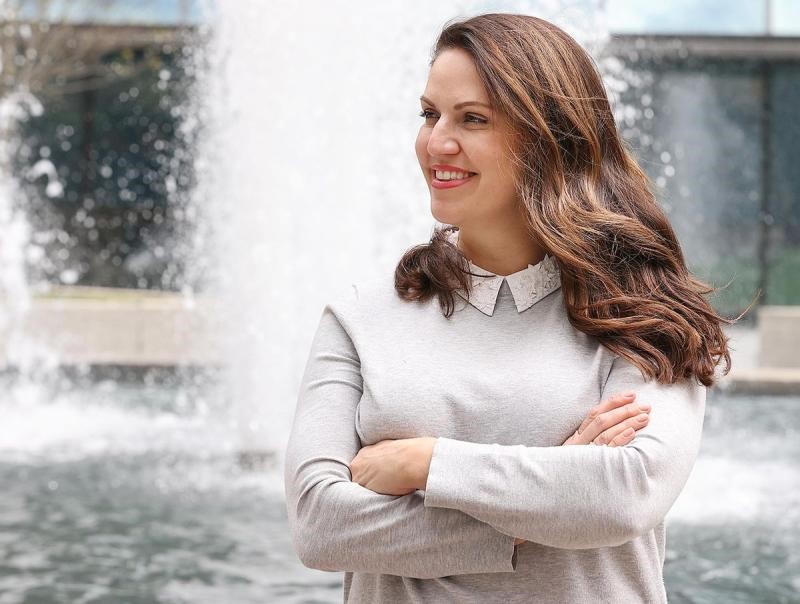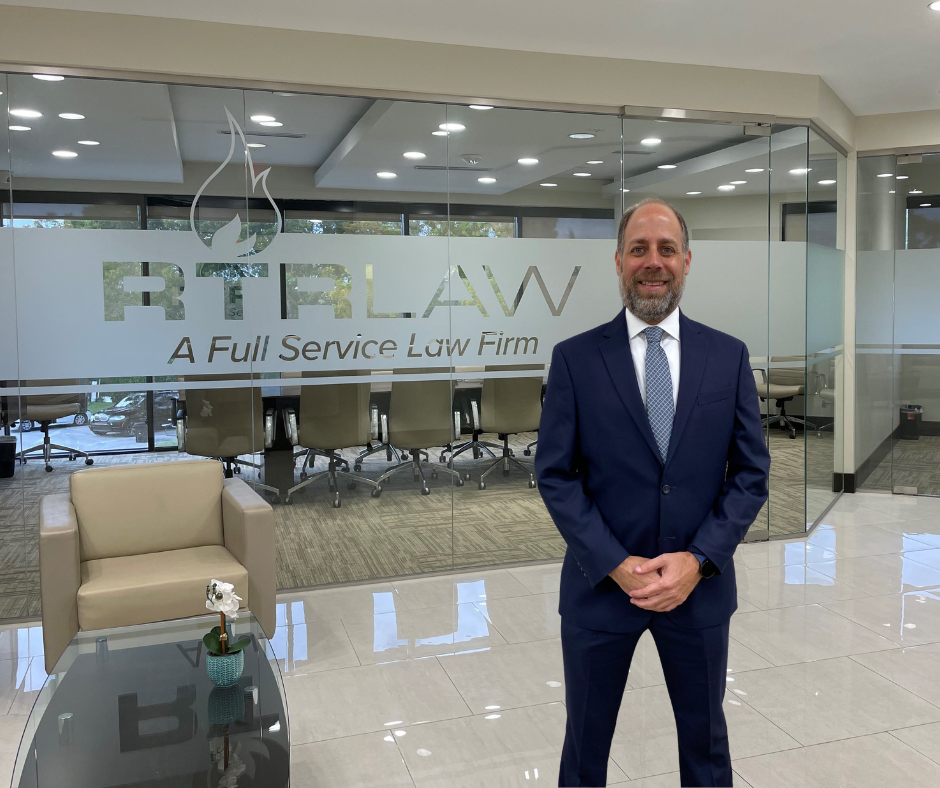RTRLAW Partner Hope Richards Featured in Orlando Sentinel Article on Real Estate Investing
RTRLAW Partner and head of our Real Estate Division, Hope Richards Esq., was interviewed recently by the Orlando Sentinel’s reporter, Trevor Fraser, and is featured in the article, “Orlando women face barriers in real estate investing, but some say that’s changing.” Please note: To read the article on the Orlando Sentinel website, you will need a subscription. If you don’t have a subscription, you can read the article below. For more information about RTRLAW’s real estate practice area or need to speak to one of our real estate attorneys about a closing or litigation, please contact us or call us toll free at 833-HIRE-RTR.
Orlando Women Face Barriers in Real Estate Investing, but Some Say That’s Changing
Four years ago, the only property Tracy Freeman owned was her house, but the idea of investing intrigued her.
“I had always known you could grow wealth in real estate, but I never knew how,” said Freeman, who lives in Orlando.
A nurse for 30 years, Freeman now manages 14 properties throughout Central Florida and works as a mortgage broker for Empire Financial in Orlando. “I just dove right in,” she said.
While women work in every facet of the real estate industry, investing in properties to rent or flip is still a male-dominated space. But women investors say the culture is changing. Women make up 64% of the membership of the Orlando Regional Realtor Association, mostly in sales. Pinning down exact numbers for how many are investing, however, isn’t easy, but investor and attorney Hope Richards says there aren’t a lot in her sphere.
Hope Richards, manager at RTR Title Central Florida, is pictured at her office building in downtown Orlando on Monday, March 14, 2022. (Stephen M. Dowell/Orlando Sentinel) (Stephen M. Dowell/Orlando Sentinel)
As the co-owner of Orlando-based RTR Title and the head of the real estate law division at RTR Law, Richards, 41, says roughly 90% of the 60 contracts she averages per week are investor related, so she is plugged into the community.
“I only work with a steady two or three women investors,” she said.
The employment data website Zippia.com puts the number of women in real estate investment at 30%.
Desirée Patno, president and CEO of Women in the Housing & Real Estate Ecosystem, says women are held back from investing by the “three-P taxes.” The first is the pink tax, the upcharge on necessary consumer products for women, from clothes to toiletries to medical expenses.
Then there is the poor tax, the extra charges on goods and services for people without savings, such as check cashing fees and rent-to-own furniture. As women still make 16% less than men, according to a 2020 Pew Research study, poverty among women remains an endemic problem.
Last, there’s the provider tax, the time and money spent taking care of children, relatives, and other uncompensated housework that often falls to women. “If anyone gets sick or has any challenges, guess who takes care of it,” Patno said. “The woman does.”
Getting Started
Access to capital is a key first ingredient in becoming an investor, and often that takes a bit of luck for any gender. Freeman, 54, got her first loan from another investor she met at a women’s luncheonin 2019.
“She normally only loaned money to seasoned investors,” Freeman said. “But she saw the initiative in me … and that’s how I got my first house.”
Freeman parlayed $66,000 into a three-bedroom, one-bath house in Cocoa, which she rents for $700 a month. After fixing up the house, she refinanced, paid off her first loan and bought her second property, a duplex in Lakeland.
But before even the need for money to get started, Richards says the first obstacle women encounter is just not being shown the path.
“I don’t know of a single woman that I’ve worked with whose dad ever took them to Home Depot and taught them about drywall or plumbing,” she said. That kind of knowledge, she said, leads to the confidence women need to maintain properties. “I think there’s a level of familiarity that men get at a young age with fixing things.”
Freeman got inspired by the 1997 book “Rich Dad, Poor Dad” by Robert Kiyosaki and Sharon Lechter about building wealth through investment.
Richards got introduced to the industry in 2008 by her then-husband.
“I married into it,” she said. “That kind of speaks to the whole issue.”
It’s the nature of the profession that the investment properties that can be bought cheaply are often found in bad neighborhoods. “I think that keeps a lot of women out,” Richards said.
Back at the start of the recession, Richards was buying what were known as zombie houses — empty, unsold homes that often attracted squatters. “Nobody wanted the mother of their children crawling through a window to see what the house looked like,” she said.
‘Like Running a Frat House’
Once in the industry, all three women agreed one of the biggest challenges is dealing with the attitudes of men.
“The really good agents in real estate have a huge ego,” Richards said. “Having a full-service brokerage is like running a frat house.”
Many times, the male culture around real estate can be exclusionary to women, Patno said. “They say things like, ‘Oh, she’s wearing heels at the construction site. She can’t handle the gutter talk,’” she said. Richards says the women she’s sees that become the most successful are the ones that “run with the boys.”
Desirée Patno, CEO of Women in the Housing & Real Estate Ecosystem, says women who want to invest need to get comfortable doing it their own way. (Courtesy photo/Women in the Housing & Real Estate Ecosystem)
And past dealing with other investors and agents, the problem persists when hiring contractors, most of whom tend to be men.
“A lot of men look down on the women in this business,” Freeman said, likening it to the experience many women have with mechanics who talk down to them. “I’ve had to watch a lot of YouTube video on how to fix things myself.”
Richards says a lot of it is based in unfair assumptions. “A lot of women don’t know how to lay tile,” she said. “All the men that started here, none of them knew how to lay tile either. But if you’re having a conversation with your [contractor], the conversation he has with a guy is different than the conversation he has with women.”
Tenants, too, male and female, can be aggressive or try to manipulate their landlords, according to Freeman. “I’ve grown a thick skin,” she said.
A Changing Environment
Some companies are pushing to close the gender gap. Sundae, an online real estate investing platform, launched an online educational program for women looking to get into the business.
Before recognizing that the field of women investors is growing, Patno says it’s important to recognize the ways in which women are already real estate investors. Single women, for example, have outpaced single men in home ownership since 1986, according the U.S. Census Bureau.
She says one of the most common ways women invest is to run businesses out of their homes. “So are they not investing or is it that you’re not seeing it because they’re turning properties into the investments for themselves?” she posited.
She wants women not to follow the pattern laid out by men, but instead to embrace their own ways of thinking. “We don’t need to imitate the man’s investment portfolio,” she said. “We need to know what we as women and as mothers need to make our lives easier and more successful.”
With her properties, Freeman likes to cater to low-income residents. “As a nurse, I’m very nurturing,” she said.
Freeman also encourages women who are interested to join local groups for women, and to mentor in the community, which she has started doing. “We want to empower each other as we’re trying to grow,” she said. “I’m always willing to help other women who want to get into this.”
Patno says that “motherly instinct” is one of the reasons women can be vital to the industry. “Real estate is not just about the brick and mortar,” she said. “It’s about the concept, about the experience of a development” that women can shape.
But Richards resents the idea that, as a woman, she has to bring some special skill to the table.
“Women have nothing extra to offer,” she said. “We’re just as capable, but there’s nothing extra.”
For her, it’s a simple question of fairness.
“There’s no reason a man should have financial security over a woman,” she said.
Want to reach out? Email [email protected]. Trevor Fraser is a business reporter for the Orlando Sentinel covering insurance, real estate and general business news. A graduate of UCF, he has lived in Orlando since 2002.


 CALL US NOW
CALL US NOW TEXT US NOW
TEXT US NOW





















